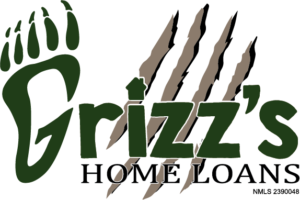FHA Loans
FHA loans are an excellent option for many first time home buyers. So what is FHA? “FHA” stand for Federal Housing Administration. FHA is part of the U.S. Department of Housing and Urban Development, also known as HUD. First time home buyers are often considered a higher risk to lenders compared to established home owners. This is due to factors such as lower down payment, lower income, higher debt-to-income ratios, or lower credit scores. We all have to start somewhere and FHA recognizes this.
FHA Down Payment Requirements
FHA requires a minimum of 3.5% down. Down payment funds must be “sourced” or “seasoned”. “Sourced” means the down payment can be traced to legitimate funds, such as employment income, gifts from family, or even retirement accounts. Cash saved up in your piggy bank at home is not considered legitimate and can not be used toward down payment due to underwriting guidelines. “Seasoned” means the funds are in your bank account for at least two months. Your down payment funds need to be documented through bank statements or other acceptable documentation per guidelines. Any large deposits will need to be addressed as well.
Gift funds can also be used toward down payment. Gifts must also come from an acceptable source, such as a close relative or even an employer. Keep in mind that these funds will need to be documented. The donor will also need to provide documentation in these scenarios and a “Gift Letter” will also need to be signed by you and the donor.
FHA Mortgage Insurance
Mortgage Insurance is something that most first time home buyers do not know much about. It is in place to protect the lender in case the borrower defaults on their mortgage. Mortgage Insurance does not protect the borrower. If the borrower defaulted on their mortgage, the lender is able to recover their losses through the Mortgage Insurance. This is why FHA is important to housing in the US. It allows lenders to be more confident and comfortable to offer higher risk home buyers financing since FHA will pay claims to the lender if the borrower defaults. If it was not for mortgage insurance, low down payment programs would likely not exist.
2 Types of MI
FHA has two types of Mortgage Insurance premiums to be aware of. The first one is the Up-Front Mortgage Insurance Premium (UFMIP). This is a fee that is collected at closing and can be financed in the loan amount. FHA requires the UFMIP to be 1.75% of the loan amount. This is a one time fee for using FHA and is collected for all FHA loans (purchases and refinances), with very few exceptions. It is an expensive fee so you should consult with your mortgage advisor to help you understand the differences in costs and options for your mortgage.
There is also an annual Mortgage Insurance Premium that is collected each month in your monthly payment. The amount of this premium will vary depending on the loan amount and the Loan-To-Value (LTV). In most scenarios, .55% of the loan amount is the annual premium. The annual premium is divided by 12 to determine the monthly amount that will be charged in your payment. This amount is required each year for the life of the loan, unless your initial LTV is equal to or less than 90%. If you fall into that category, the MI will drop off after 11 years. FHA premiums and guidelines do change though.
FHA Interest Rates
FHA interest rates are typically lower than conventional rates. This can help to reduce your monthly payment. Keep in mind that the UFMIP and annual MI may offset some or all of these savings in interest in the long term picture. However, if short term finances are more important to you, then FHA loans may offer an overall lower monthly payment to the home buyer. The monthly payment can make or break a household’s budget so these are important factors to consider.
Other Items To Be Aware Of With FHA Loans
FHA loans allow for higher DTI ratios. This allows more borrowers to qualify for a loan. There are loan limits that depend on the county in which the property is located. This does limit some borrowers on how much of a home they can purchase. FHA requires properties to be in good shape. If there are deficiencies in the property, repairs may be required before financing can be secured. This is based on FHA guidelines that appraisers must adhere to.
Refinancing Your FHA Loan
There are a few different options when refinancing your FHA mortgage. You can do a FHA streamline, which allows you to reduce your interest rate if you qualify. You still need to pay the UFMIP, but it will be reduced to .55% instead of 1.75% that applies to purchases. The UFMIP can be financed into the loan amount if desired. Many borrowers find it advantageous to refinance into a conventional mortgage when their credit scores increase. This is because the MI on a conventional mortgage is lower for borrowers who have higher credit scores.
Interest rates also factor into when it is the right time to refinance. When your house appreciates enough and your LTV on the new loan is below 80%, you may be able to refinance out of mortgage insurance altogether. There are even some scenarios when getting rid of the mortgage insurance would be worth taking a little higher interest rate on a conventional loan. This would be another reason to talk with your trusted mortgage advisor.
Have Questions About FHA Loans?
Grizz’s Home Loans can help you with your questions about FHA loans. Whether purchasing, refinancing, or building, we want to help you understand your options. Let us customize your loan to fit your goals. We offer low rates on Conventional, FHA, VA, USDA, Jumbo, Reverse mortgages, and more! Reach out today or APPLY NOW to get started and save money on your mortgage!

